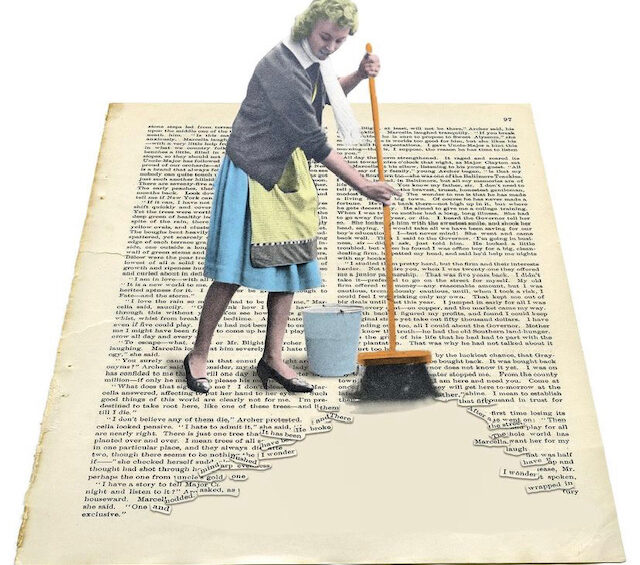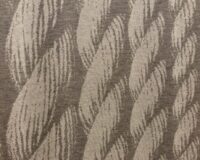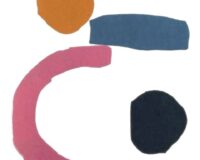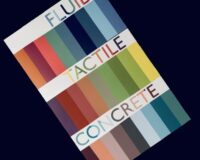Illustration byToon Joosen, Clean up…
Little spring cleaning
(cue taken from an article by Matteo Saudino professor of philosophy)
Like every year, the arrival of spring brings with it, in addition to the swallows (which also defy climate change) the ‘ritual of cleaning’ along with good resolutions. It is mostly an initiative for the adult world…perhaps it is an excuse for not implementing the small changes in getting one’s life in order, a more arduous undertaking with less visible short-term effects. I liked the comparison of the inability to implement the ‘clean and optimize’ functions as in smartphones.
Plato advised taking care of the soul and then tidying up the mind and making it work (safe from fake news) to understand and be aware that we must often fix and not leave to situations and others what is in our power and worth living.
Consideration of experiencing the real in the ‘catastrophic’ idea of how we are not reacting to a certain but absurd reality with dynamics highlighted in the book ‘Non–Things‘ by Byung-Chul Hang, South Korean philosopher and lecturer
We want to become gamers: life is not a reality with dramatic aspects that prompts us to act but a game to entertain. We perceive reality through the screen and the smartphone….
‘Things‘ are the staples of existence, while information is not: it has limited validity and requires our attention. We produce and consume more information than things. What matters is the effect in the short run: effectiveness replaces truth. In relative knowledge, we take notes without learning to know, we travel without having real experience, we communicate without taking part in a community. We save a wealth of data without resonating memories. Thus information generates a way of life lacking tightness and durability.
Freedom of action in free consumer choice. Today’s consumer goods are prying, intrusive and chatty. Precooked ideas and emotions. Information capitalism conquers the various corners of life.
The difference between culture and commerce is disappearing: places of culture are consolidated in the terms of profitable brands. The history of a place is invaded by ‘storytelling’ that makes it a source of added value. Culture becomes a commodity, causing the destruction of the community.
Community, evoked by digital platforms, becomes a commodity form of community and as a commodity, it ceases to exist. Communication is without body and gaze, co-responsible for the loss of empathy. Digital images transform the world into information that influences and distracts us. By typing I submit the world to my needs, with the impression of total availability.
Neoliberal capitalism in its regime is smart; it does not operate through orders and prohibitions but makes us submissive through a drugged addiction that gratifies needs, pleasing us. It does not impose silence on us but insistently demands that we externalize opinions, preferences and desires, representing our own lives. Hyper-communication in its noise overpowers silence, and everyone reproduces himself and does not listen.
However, I think we can have the ability to choose and take due and desired detachment from such ‘entrapment’.

From ‘not things‘ to ‘curious things‘ … a dash of levity from 📕 ‘Many dear things‘ by Chiara Alessi (design expert)
| Things are concentrates of stories, memories, smells, affects, transitions, memories. When you lose an object or let it go, you feel a loss that does not only coincide with the loss of its economic value. As Sartre would say – the past is a luxury to own – we lose precisely a piece of the past…the owning in having a past, like a home, to return to and take refuge in but also from which to look out, move, evolve, and at some point, to abandon. To know its history, its reasons, its curiosities…we already possess them somewhere, in our heads, in the memory of our hands, in a photograph, in the memory of a scene we were told about. Possibly also the proper names: the maternity, that is, the story that generated them, and the paternity, that is, the author. In some cases knowing birth dates and places, for example, to remind us that some of those objects we thought had always been there instead only arrived at a certain point and with specific reasons ” Many dear things ” is a typical way of saying goodbye when saying goodbye. It is a good omen. It is like saying ” be well “. |
The nostalgic and sentimental answer of the 3 ‘things’ you carry with you that you can’t forget…







